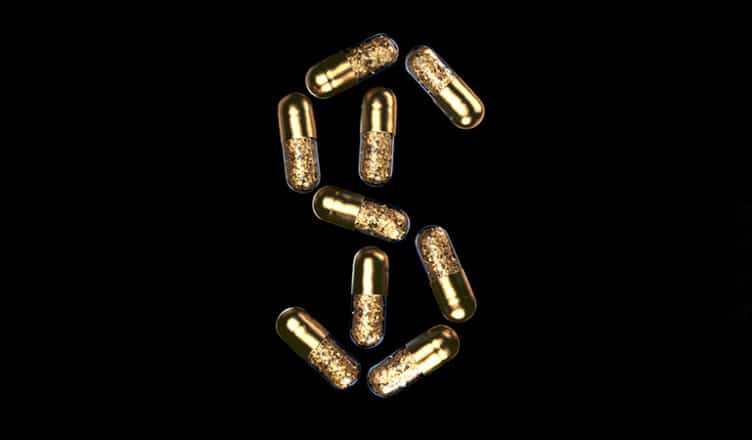“Show Me The Money, Honey” book reveals cholesterol, saturated fat and salt are good for most people’s health
AUCKLAND, NZ, — A new book on health warns tens of thousands of New Zealanders could be killed by key policy directives of New Zealand’s Ministry of Health.
Investigative journalist Ian Wishart says there’s compelling evidence from peer-reviewed medical studies that 50 years of health advice about the dangers of salt, cholesterol and saturated fat is wrong, and the mistake is already costing lives.
Show Me The Money, Honey: The Truth About Big Pharma’s War on Salt, Chocolate, Cholesterol & the Natural Health Products That Could Save Your Life [Howling At The Moon Publishing, 2016, $38.99] surveys more than 300 scientific studies and randomised controlled trials, to take the pulse of current and emerging scientific debate on health issues affecting everyone alive today.
“What I found stunned me,” Wishart says. “For five decades we’ve been told to eat a low-fat high carb diet, and to cut down on protein, saturated fats, salt and the like. We’ve been told to eat more cholesterol-reducing polyunsaturated fats. But now a huge body of medical research is saying the original studies on these issues back in the sixties and seventies were flawed, and that the health advice we’ve all been following is not just wrong, it’s deadly advice.”
In the book, Wishart reveals that while observational studies have linked heart health to lowering cholesterol and salt intake, randomised controlled trials – the gold standard in medical science – have failed to back that up. Instead, as the book shows, people with “ideal” cholesterol levels have a much higher risk of heart attack, and people who limit their salt to the WHO-recommended two grams of sodium a day have a much higher mortality rate.
How much higher? A staggering 83% increase in risk! Forty-two percent of all heart failure patients placed on low salt diets in one clinical trial were either dead or hospitalised again within the three years of the study. In contrast, only 26% of patients given a higher salt intake shared such fates, reported the Journal of the American College of Cardiology this year in one of the studies quoted in the book.[i]
“The figures don’t lie,” says Wishart, “if you follow current health guidelines you are more likely to die young, and this may explain why otherwise healthy people are dropping dead younger than expected.”
The latest studies are showing sodium intakes of less than 3 grams a day, or exceeding 7 grams a day [but only if you have high blood pressure], are associated with much higher risk of early death. The sweet spot is an intake of 5-6 grams of sodium a day (two to three teaspoons of actual salt) which is healthy for everyone despite being up to three times higher than WHO guidelines. The average sodium intake for New Zealanders is between 4 and 5 grams a day, meaning there is no need to reduce salt in food.
“This is a crisis the medical establishment has to confront head on, ordinary New Zealanders have a right to know what the medical studies in the book have revealed. New Zealanders have a right to know that policy analysts at the Ministry of Health are going to take it onboard, particularly as a $452 million salt tax per annum is currently being mooted for New Zealand.”
OTHER KEY REVELATIONS:
- Eat more chocolate: Contrary to expectations, eating chocolate every day protects the heart, helps you burn fat and reverses ageing in clinical trials (removes wrinkles)
- Low cholesterol levels are a bigger killer than high cholesterol: If you are on cholesterol-lowering medication, read the latest scientific studies and ask your doctor about the risks of low cholesterol. “Paradoxically, participants who had greater reductions in serum cholesterol had a higher, rather than lower, risk of death…There was a 22% higher risk of death for each 30 mg/dL (0.78 mmol/L) reduction in serum cholesterol…there was no evidence of benefit in the intervention group for coronary atherosclerosis or myocardial infarcts [heart attacks].” In other words, the lower your serum cholesterol, the higher and higher you raised your risk of a heart attack. “Results of a systematic review and meta-analysis of randomized controlled trials do not provide support for the traditional diet heart hypothesis,” the study reported.
- Avoid multivitamin supplements – they are linked to a higher risk of cancer
- Sunscreens don’t work against melanoma – the latest scientific reviews of sunscreens in 2016 have found they don’t protect against melanoma and probably never have, raising massive questions about misleading trade practice health claims.
- Vitamin C may help kill cancer
- Avemar does help kill cancer
- Replacing animal fats with vegetable oils in the diet may shorten your life
- Fish oils are essential for health
Show Me The Money, Honey by Ian Wishart goes onsale nationwide in all good bookstores today including Whitcoulls, The Warehouse, PaperPlus, Take Note, Mighty Ape and Amazon.
[i] “Dietary sodium restriction in heart failure: a recommendation worth its salt?” Hummel & Konerman, JCHF. 2016;4(1):36-38. doi:10.1016/j.jchf.2015.10.003
Click here to view original web page at www.investigatemagazine.co.nz
